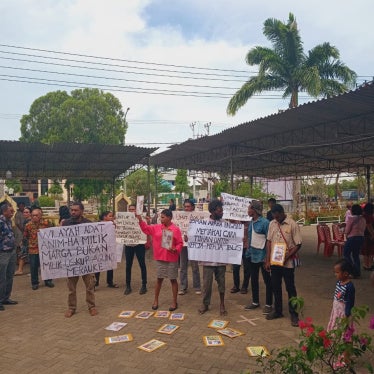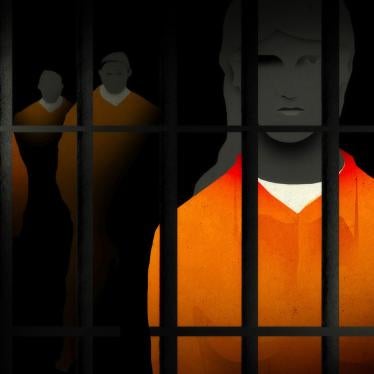Crafting a multilateral approach is essential to help prevent Beijing from playing off one country against another, as it has done so effectively in the past, or dismissing U.S. protests as part of an American campaign of superpower domination.
WASHINGTON -- Regardless of who wins the November election, the incoming administration will inherit some complex foreign policy dilemmas. China's emergence as a great power is one such challenge. How Al Gore or George W. Bush deals with China will help define their respective foreign policy priorities.
How would each of them balance competing pressures for confrontation vs. dialogue to promote stable U.S.-China relations and long-term political change? Will human rights be an integral component, or merely a rhetorical commitment that takes a back seat to other interests?
Since the 1989 Tiananmen crackdown, debate over China policy has split both the Republican and Democratic parties, driven by highly polarized images. Beijing is seen either as a ruthless Communist dictatorship that must be contained or as an authoritarian system in transition that can be a strategic partner with the United States.
The Senate is to vote on permanent normal trade relations (PNTR) for China later this week. But it will be left to the new White House to forge a consensus on how best to encourage China's evolution as a responsible member of the international community.
The current "engagement" approach is heavily dependent on trade and investment as a catalyst in the hope that economic reform will eventually lead to political reform. It's based on the assumption that a generational change under way in China will gradually erode the Communist Party's monopoly on power. Over time, connections to the Internet -- eagerly sought by the country's young people -- may become more useful for social advancement than contacts in the party.
These assumptions may be correct. But the Clinton administration has failed to carry out a credible policy that uses both carrots and sticks to further China's political and economic development, while also supporting those taking risks and working for political change from within.
China's prospective entry into the World Trade Organization (WTO) will certainly increase demands for greater transparency in matters of trade and investment. But WTO membership won't in itself lead to a more open, accountable form of governance. Consistent outside pressure is also needed.
Jiang Zemin, China's president, has been heralded for his role as an economic reformer. Struggling to cope with rising unemployment, rampant corruption and widespread protests by unpaid workers and disgruntled farmers, he has pegged his survival on the ability to deliver continued economic growth.
But Mr. Jiang has been equally determined to stamp out potential challenges to the party's rule. "Any political behavior that is aimed at damaging the stability and unity of our country runs counter to the will and the fundamental interests of the Chinese people," he proclaimed. The government should "have a clear-cut stand in increasingly opposing them and firmly nipping them in bud."
Thus, pro-democracy activists, religious believers outside the official churches, ethnic Tibetans, members of Falun Gong, and those trying to use the Internet to expose abuses, have all been suppressed. Some have been given heavy prison sentences or have been sent to "re-education through labor" camps.
The next U.S. president will need a vigorous bilateral policy, combined with serious attempts to reach out to China's other chief trading partners, including Japan, Canada, Australia and the European Union. Crafting a multilateral approach is essential to help prevent Beijing from playing off one country against another, as it has done so effectively in the past, or dismissing U.S. protests as part of an American campaign of superpower domination.
Here are some elements of China policy an incoming administration can embrace:
- Support institutional reform. Provide funding for rule-of-law programs, such as training and exchanges of lawyers and judges, seminars in how to deal with labor-industrial relations and to apply international legal and labor norms. These are slow, incremental initiatives, but important nonetheless if the U.S. wishes to align itself with those inside China working for institutional change.
- Don't overemphasize trade. Add teeth to the new bilateral human rights commission on China created by the PNTR legislation, by insisting that the commission's annual report to Congress trigger a debate and vote on specific policy recommendations. This is vital so that once China joins the WTO, the focus on getting compliance with its trade obligations doesn't marginalize human rights on the U.S.-China agenda.
- Push business to be more pro-active. Lobby Congress to adopt a "code of conduct" for American companies in China. It's time to take at face value the claims of U.S. businesses that they are "sowing the seeds of democracy" by their presence in China and the treatment of their workers. A code spelling out "best practices," and providing for reports on its implementation, would give consumers confidence that corporations are doing more than paying lip service to core rights concerns.
- Use summits to get results. High level summit meetings with China's leaders should be preceded by tough negotiations for concrete human rights progress. President Clinton was right to go to China in 1998, but his successor should make it clear that ratifying and implementing key U.N. human rights treaties China has signed must be part of the agenda if he is to travel there early in his term.
Mike Jendrzejczyk is Washington Director for Human Rights Watch's Asia Division.








